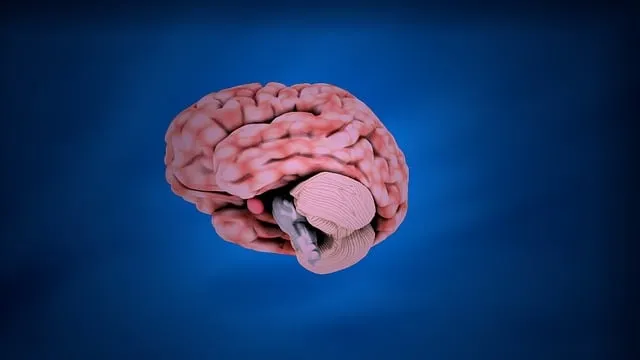Kaiser Permanente's behavioral health center in Castle Rock leverages RFM (Reach, Frequency, Monetary value) data to enhance patient resilience and emotional well-being. By identifying at-risk individuals early, targeting interventions effectively, and fostering a supportive community, the center uses this strategy to tailor support to individual needs. A holistic approach incorporating CBT, conflict resolution, and crisis intervention equips clients with tools to challenge negative thought patterns and manage intense emotional distress. Strategic planning, stakeholder collaboration, and regular evaluation ensure the program's long-term success in building resilience within the Castle Rock community served by Kaiser Permanente.
At Kaiser Permanente Behavioral Health Center in Castle Rock, implementing Resilient Factor Model (RFM) exercises has emerged as a game-changer. This article delves into how RFM, tailored for mental well-being, significantly impacts patient outcomes at this leading healthcare provider. We explore evidence-based resilience-building exercises, integration strategies, and successful implementation metrics, offering insights into enhancing psychological resilience within the unique context of a Kaiser Permanente center in Castle Rock.
- Understanding RFM and Its Impact on Behavioral Health at Kaiser Permanente Castle Rock
- Identifying Key Resilience Building Exercises for Implementation
- Strategies for Seamless Integration of Resilience Training at the Center
- Measuring Success: Evaluating the Effectiveness of RFM Programs at Kaiser Permanente Castle Rock
Understanding RFM and Its Impact on Behavioral Health at Kaiser Permanente Castle Rock

At Kaiser Permanente’s behavioral health center in Castle Rock, understanding RFM—Reach, Frequency, and Monetary value—has been instrumental in shaping resilience-building exercises and promoting emotional well-being among patients. This data-driven approach helps identify at-risk individuals who may be less engaged with services or showing signs of deteriorating mental health. By analyzing these factors, the center can target interventions more effectively, ensuring support goes to where it’s most needed.
The implementation of RFM has not only helped in managing patient mood and enhancing self-awareness exercises but also in fostering a sense of community within the treatment environment. This tailored approach enables the behavioral health team at Kaiser Permanente Castle Rock to offer personalized support, ultimately strengthening patients’ resilience and promoting long-term emotional well-being.
Identifying Key Resilience Building Exercises for Implementation

Identifying Key Resilience Building Exercises for Implementation at Kaiser Permanente behavioral health center Castle Rock begins with understanding the unique needs and challenges of the community it serves. A comprehensive approach should incorporate exercises that foster self-esteem improvement, conflict resolution techniques, and crisis intervention guidance. By integrating these strategies, the behavioral health center can create a robust framework to build resilience among its clients.
Self-esteem improvement exercises, such as cognitive behavioral therapy (CBT) techniques, help individuals challenge negative thought patterns and develop healthier self-perceptions. Conflict resolution techniques teach essential skills for navigating interpersonal challenges constructively, promoting positive interactions. Crisis intervention guidance equips individuals with tools to manage and overcome sudden, intense emotional distress. Tailoring these exercises to meet the diverse needs of the community ensures that resilience-building initiatives at Kaiser Permanente behavioral health center Castle Rock are effective and impactful.
Strategies for Seamless Integration of Resilience Training at the Center

At the Kaiser Permanente behavioral health center Castle Rock, seamlessly integrating resilience training at the core involves strategic planning and a holistic approach. The first step is to align the program with the existing infrastructure and goals of the center, ensuring that resilience exercises complement and enhance the services already provided. This can be achieved by involving key stakeholders from various departments, fostering collaboration, and tailoring the curriculum to meet the unique needs of the population served.
Implementing Compassion Cultivation Practices and Emotional Healing Processes within structured sessions can effectively reduce stress and promote well-being. By incorporating Stress Reduction Methods, such as mindfulness techniques and cognitive reframing, the center can empower individuals with valuable tools to navigate life’s challenges. Regular evaluation and feedback from participants are essential to refining the program and ensuring its long-term success in building resilience within the community served by Kaiser Permanente behavioral health center Castle Rock.
Measuring Success: Evaluating the Effectiveness of RFM Programs at Kaiser Permanente Castle Rock

Measuring Success: Evaluating the Effectiveness of RFM Programs at Kaiser Permanente Castle Rock
The success of any resilience-building initiative, such as those implemented at Kaiser Permanente behavioral health center Castle Rock, lies in its measurable outcomes. By employing robust evaluation methods, the program’s effectiveness can be accurately assessed, ensuring that resources are allocated efficiently and positively impacting individuals’ lives. The RFM (Resilience, Flexibility, and Mindfulness) programs have been designed to foster self-esteem improvement and mental illness stigma reduction efforts, ultimately promoting emotional well-being promotion techniques among participants.
Through regular assessments and feedback sessions, the Castle Rock behavioral health center tracks progress in key areas like reduced stress levels, enhanced coping mechanisms, and improved overall mental resilience. These quantitative and qualitative data provide invaluable insights into the program’s reach and impact. By evaluating participant satisfaction, behavioral changes, and long-term benefits, Kaiser Permanente can continue refining its RFM initiatives, ensuring they remain effective and relevant to those seeking support for their emotional well-being.
Resilience is a powerful tool for enhancing mental well-being, and its integration into Kaiser Permanente’s behavioral health center in Castle Rock has shown promising results. By implementing RFM (Resilience, Flexibility, and Mastery) exercises tailored to individual needs, the center empowers individuals to navigate life’s challenges with greater ease. The seamless strategies outlined in this article provide a roadmap for other facilities to adopt similar initiatives, fostering a culture of resilience within their communities. Through continuous evaluation and adaptation, Kaiser Permanente Castle Rock’s RFM programs demonstrate their effectiveness in transforming lives and improving overall behavioral health outcomes.






